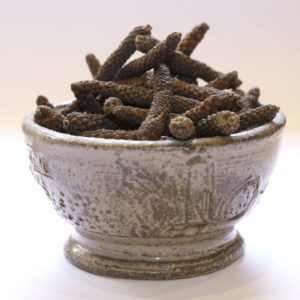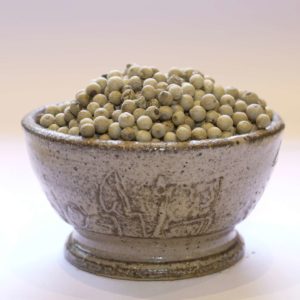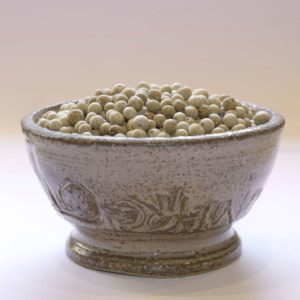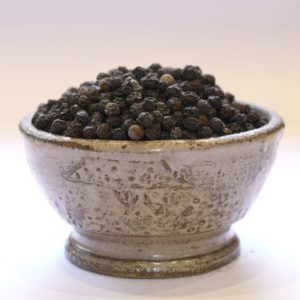0
- ONLINE GROCERY
- OUR HISTORY
- BLOG
- CONTACT
- MY ACCOUNT
- PRO
7,90 €132,80 € /kg
Originally from Cameroon, piper nigrum from India arrived in Africa in 1930. The first PGI on the African continent, Penja black pepper is a sure bet for pepper lovers.
Now available in organic here
Varied-colored, creamy grapes. Powerful, fairly full-bodied and long-lasting on the palate. Its notes are heavy, refined, woody, amber and musky.
Ideal with red meats and poultry in sauce.
Growing wild in the savannah, Penja pepper was awarded Africa's first PGI in 2013, along with Moroccan honey and argan oil. Once crushed, it gives off its full aroma. It enhances red meats, poultry and other dishes with spicy sauces.
Penja pepper is grown in the Littoral region of Cameroon (one of the 10 regions), more precisely in the Moungo district. In Cameroon, it's known as the country's granary. It has always been a very rich agricultural region. Its proximity to the sea and the presence of important waterways made it a gateway for the conquest of the North-West regions, and a privileged zone for the start-up of a crop of exotic products dedicated to supplying European markets. As a result, agriculture has been massively developed by European settlers since the end of the 19th century, with many commercial exchanges. Until decolonization, this development took place mainly through the establishment of large capitalist plantations. Cocoa was introduced by German settlers, followed by bananas and coffee under the English and French colonial powers. The local population thrives on the demand for labor, and is encouraged to plant these same crops to increase global production, which they base on family labor. As the market economy spread throughout the country, major migratory movements took place, in particular to the Moungo region thanks to its rich soil and growing economy.
In 1960, Cameroon gained its independence and the English region became part of the rest of the country in 1961. However, the agricultural sector continued to develop along the same lines, even though public companies were emerging. As former colonialists, French entrepreneurs still owned many companies. This model lasted until the 1980s, making Moungo one of Cameroon's most developed districts. Subsequently, the global market liberalization movement left the sector to the fluctuations of international commodity prices. During the 90s, coffee was replaced by cocoa, fruit trees (notably papaya) and pineapple. A similar movement occurred in the 2000s, with a loss of competitiveness in the pineapple market and a stagnation in cocoa prices. This was an important factor in the dynamics of conversion to pepper cultivation. Since the early 2000s, Plantations du Haut Penja (PHP), a French capitalist company, has become a major economic player in the region with the acquisition of large local plantations. Today, it controls over 4,000 ha of land, mainly under banana cultivation.
Since 2013 and the start of the PGI, prices have risen sharply. On the whole, growers have managed to secure their share of the pepper's value. However, rising prices are driving more and more operators into the market. Between 2009 and 2016, the price per tonne of pepper tripled.
Botany: Piper nigrum L. (INPN)
Origin: Moungo, Cameroon, Africa
Ingredients: 100% black Penja pepper
Storage: Several years, protected from light and humidity.
Product strength: 6 (Scoville)
| Weight | 50 g |
|---|---|
| DLUO | |
| Botanical nomenclature | Piper nigrum L. |
| Weight | 50g box, 50g pouch, 100g pouch, 250g pouch, 500g pouch |
| Continent-Country | Africa |



